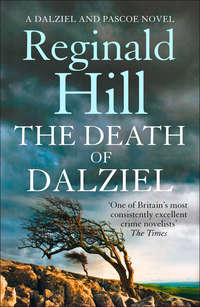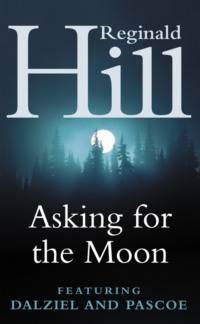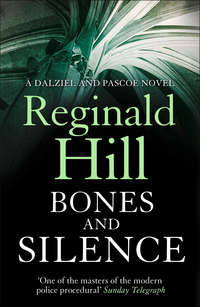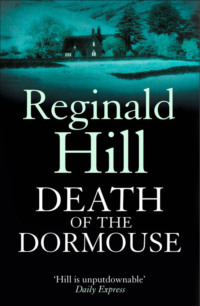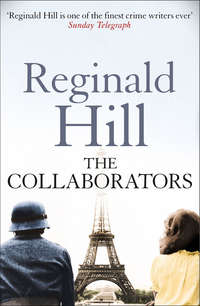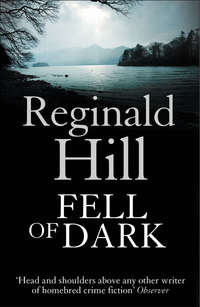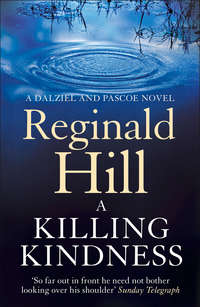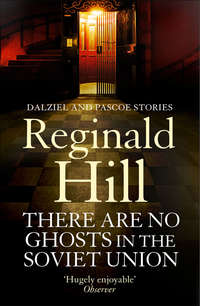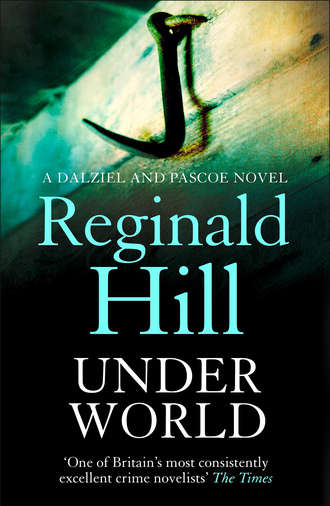
Полная версия
Under World
‘Yes,’ said Wishart. ‘He was away, but his father wasn’t. Billy Farr was the last person to see, or admit seeing, Tracey alive. In fact, he was in the frame for a bit. He was an old friend of the Pedleys, it seems, and had taken a real shine to the little girl. He often used to take her off for walks, him, her, and his dog. They’d gone brambling that day up in … let’s see, here it is … Gratterley Wood, that runs along a ridge to the south of the village and there’s a track runs up to it behind the Miners’ Welfare Club where Tracey’s father was – still is – steward. Mrs Pedley expected them back about five for the little girl’s tea. But, according to Farr, Billy Farr that is, they were back within half an hour, about four o’clock. He said he wasn’t feeling too well, and that’s why instead of taking the girlie in as he usually did, he left her in the lane at the back of the club, just a few yards from the kitchen door. Trouble was, no one else saw her and there was no sighting of Billy Farr himself till he got home just before six, by which time the Pedleys were getting a bit agitated. Farr said he’d just been walking around by himself. Evidently he was like a man demented when he heard the girlie was missing, though demented with what wasn’t clear to a lot of people.’
‘Guilt, you mean?’
‘There’s nowhere like a mining village for gossip,’ said Wishart. ‘Naturally there was a big search for the girl. They found her bramble pail in the woods on a path running down to the road about a quarter-mile outside the village. There were a couple of sightings of a blue car parked off the road, but one of them was by Billy Farr’s best friend, so that didn’t carry all that much weight. Watmough certainly looked long and hard at Farr for a couple of days, then Pickford topped himself, and it was roses, roses, all the way for Mr Watmough and his modern investigative techniques which, we were assured, had pressurized Pickford into his suicide.’
‘So it was merely Pickford’s death that took the spotlight off Farr?’
‘To be fair, I don’t think so,’ said Wishart. ‘Watmough seems to have lost interest in him before Pickford killed himself. At least that’s how I read the file.’
‘And was there any doubt locally?’
‘It seems so, though probably not a lot. Billy Farr was well thought of, a quiet fellow and a bit of a loner, especially since his accident which left him too lame to work underground, but much respected. Most people were happy to accept that Pickford was responsible. It had all the marks of one of his killings – except that they never found the body. But two child killers in the same neck of the woods on the same day was unlikely, wouldn’t you say? And Watmough wasn’t averse to clearing up as many cases as he could in one triumphant swoop.’
‘And the few who didn’t accept this?’
‘Swift tells me that before Pickford died they got the usual rash of anonymous calls and notes, pointing in every possible direction from the vicar to the NUM. Afterwards there was only one, a note, printed in block capitals. It said, YOU GOT THE WRONG MAN FOR TRACEY. DON’T WORRY. WE WON’T.’
‘And how did Swift interpret this?’
‘Sergeants don’t interpret, they file, have you forgotten? But he recalled it on Boxing Day three months later when Billy Farr went missing and they found him at the foot of a sealed-off shaft in the old workings along the same ridge that Gratterley Wood stands on. Inquest brought in a verdict of accident. His wife said he’d gone out for a walk with his Jack Russell. There was no sign of the dog. Theory was that it had got into the old workings somehow and when Farr realized it was lost, he’d started looking down the old shaft, the cover was rotten, it broke, he slipped, and bingo! A day or two later there was another note arrived at the station. It said, CASE CLOSED.’
‘It’s a sick world,’ said Pascoe. ‘And this is why young Farr came back to Burrthorpe?’
‘That’s it. And he’s been a bloody nuisance ever since.’
‘To the police?’
‘To every bugger as far as I can make out. Perhaps not the kind of company an ambitious young policeman’s wife ought to be keeping.’
‘Thanks for the “young”, Alex,’ said Pascoe. ‘As for the rest, get knotted. But let’s keep in touch over this one, shall we?’
‘Take care, Peter,’ said Alex Wishart.
Pascoe replaced the phone. The clouds on his horizons were still just the size of a man’s hand. Only now the man seemed to have hands the size of Andy Dalziel’s.
Chapter 9
Colin Farr awoke with a splitting head. The alarm clock by his narrow bed told him it was past eleven. He was on ‘afters’, the 1.0 P.M to 8.0 P.M shift. Last night he had started drinking as soon as he finished. There’d been some bother at the Club and he’d left. He couldn’t remember much after that but there was the aftertaste of greasy chips in his mouth which suggested he hadn’t come home to eat the supper his mother would have cooked for him.
Groaning, he rose, washed, dressed, and went downstairs to face the music.
His apologetic mood evaporated when he went into the kitchen and saw Arthur Downey there, sitting at the table drinking a mug of tea.
‘’Morning, Col,’ the deputy said, smiling rather uncertainly.
‘It’s you,’ said Farr. ‘Run out of tea, your sister?’
‘Colin, don’t be rude. After last night, you should be ashamed to show your face in this kitchen. I had to throw his supper out, Arthur.’
His mother was standing by the stove from which came a smell of rich meat pastry. May Farr was in her forties, a tall, good-looking woman whose face and body could have done with putting on a bit more weight, and the rather becoming dark shadows around her eyes had not been put there with a brush.
‘I’m sorry,’ said Farr sitting down.
Downey seemed ready to accept that the apology included him.
‘I just brought your mam some vegetables, Col,’ he said. ‘You don’t have to go to sea to get scurvy, do you?’
‘Don’t you? Mam, I hope you’re not making that pie for me. I couldn’t face owt more than a cup of tea and mebbe a sandwich.’
‘You missed your supper last night and I’ll not have you going to work on an empty stomach.’
‘They don’t need their meals regular like us old ones, May,’ said Downey. ‘I bet you often got dragged out of your bunk in the middle of the night when you were at sea, Col, and had to work all day with next to nowt.’
‘It weren’t the bloody Cutty Sark I were on!’ exclaimed Farr. ‘All right, Mam, I’ll have some, but not too much, mind.’
‘Don’t you miss it, the sea?’ said Downey. ‘I sometimes wish I’d given it a try when I were younger.’
‘You’re not old now, Arthur,’ said May Farr, bringing a flush of pleasure to the lanky man’s cheeks.
‘No, you ought to sign on as a cabin boy,’ said Farr. ‘Or better still, stow away.’
Downey laughed and finished his tea.
‘I’d best be off,’ he said. ‘See you down the hole, Col. Thanks for the tea, May.’
After the door closed behind him, May Farr said, ‘Right, my lad, before we go any further, I’ll not have you being rude to Arthur Downey or anyone else I care to invite into my house. Understood?’
‘The bugger’s always sniffing round here …’ protested her son.
‘You listen, Arthur were a good mate of your dad’s and he’s been good to me since … it happened. He’ll always be welcome in this house as long as I’m here, understand? Besides, he grows best veg in Burrthorpe on that allotment of his.’
She offered this lightening of tone by way of truce which Colin Farr was happy to accept.
‘Aye, it’s not many lasses round here who get bouquets of broccoli,’ he said slyly. ‘You best be careful else you’ll have folk talking.’
‘What do you mean?’ she said indignantly as she took the pie from the oven. ‘Has someone been saying something?’
Her son smiled sweetly.
‘There’s not many round here would dare say owt like that to me,’ he said with an easy confidence she found more dismaying than comforting.
She heaped the pie on to a plate which she set before him. As he ate, he asked casually, ‘Do you think you will get married again, Mam?’
‘How should I know? I’ve no one in mind, if that’s what you mean. But this is wrong way round. It’s me as should be asking you when you’re going to get wed and settle down.’
‘Me?’ he laughed. ‘Who would I marry when all the best ones are gone?’
‘You’re not still moping after Stella, are you?’ she asked in alarm.
‘Me run after a married woman? What a thing to say about your own son!’ he mocked. ‘All I meant was, you’re the best, Mam, and they don’t make ’em like you any more.’
She sat down and regarded him seriously, refusing to respond to his sentimentality.
‘What does keep you here then, Col, if you’ve no plans for settling? I know you hate it, always did. And don’t say it’s for my sake. I’m all right now. I’ve got friends, real friends …’
‘You mean Red Wendy and her mates in the Women’s Support Group?’ he laughed. ‘With friends like yon, you need a man around the place to keep an eye on you.’
‘You see, there you go again, Col, trying to put it down to me. Don’t do that. Don’t keep things hid deep inside you like he did. Yes, Wendy and the others are my friends. It may have ruined the Union, but there’s me and a lot like me who can say thank God for the Strike. It showed me a road I’d not have found on my own. And you, Col; I thought when you started getting involved that mebbe you’d found a road too …’
‘Me? Oh, I liked the action and the fighting well enough, but the only road I hope to find in Burrthorpe is the road out of it.’
‘Then why don’t you go?’ she asked passionately. ‘And don’t pretend to be hurt, I know all your little acts, remember? You know what I’m saying. I wept the first time you went, after your dad hurt his leg. And I’ll weep if you go again. But I were glad then too, glad that now neither of my men was going to be killed down that hole … Well, I were wrong about one of them, though God knows how …’
‘There’s more than God knows,’ interrupted her son fiercely.
‘Is that it, Col? Listen, son, he’s dead, he’s gone, does it matter how or why? There’s nothing any of us can do will bring him back, so why waste your life boozing and fighting and causing trouble in the Club, and wandering round them old workings looking for God knows what …’
‘Who’s been gabbing? That old woman Downey, is it?’ Farr interrupted once more. ‘Jesus Christ, it’s like living in a fish tank, this place! What do you have to do to get a bit of privacy?’
‘Try living quiet, not raising hell wherever you go,’ suggested his mother.
Colin Farr pushed his plate away and stood up.
‘No one ever lived quieter than my dad and they didn’t let him alone, did they?’
‘Col, don’t talk like that. What do you mean? What are you trying to do? Col, please, you’ve no idea how it upsets me to see you this way.’
There were tears on her cheeks. He put his arms round her shoulders and kissed them away. It was a gesture neither awkward nor theatrical. He had a natural grace in his movements which had made him stand out even as a child. He drew back and smiled at her, the smile which had so often won forgiveness instead of punishment, and complicity instead of accusation. Billy had sometimes said she was spoiling him but she knew how deep her husband’s love went too.
‘I’ll go soon, Mam,’ he promised. ‘Once I’m sure you’re OK and … once I’m sure. Now I’d best be off to work.’
She watched him walk away down Clay Street, marvelling as always that from Billy Farr’s seed and her womb a creature of such grace and beauty could have sprung. At the corner he turned and smiled and waved his snap tin. She waved back, then went inside and began to clear the dishes.
Colin Farr walked on, no longer smiling. The long brick terraces opening directly on to the pavement frowned back at him. They had been built a hundred years ago when Burrthorpe had suffered its first expansion from rustic hamlet to mining village. Perhaps they had looked more cheerful then. He doubted it. There had been other expansions since, most affluently in the late ’sixties and early ’seventies. The low hills to the east, the end furthest from the pit, were chequered with owner-occupied boxes. There were modern shops in the High Street (one with a new plate-glass window) plus a bank and two building societies. The Strike had hit hard, but the natives of Burrthorpe were used to taking and giving hard blows, and they would bring the good days back, if the pit survived.
Here was the irony which Farr felt every day of his life. It was like being fed by a tyrant you hated, yet if you slew him, you would starve.
He was in the High Street now, heading west towards the Welfare. The village was built in a blank valley running east to west. It was along the densely wooded southern ridge that the sweet infection of coal had first been detected. Here due to some geological fault the veins were broken and often near the surface, and possibly the uprooting of some ancient tree in a storm revealed the symptoms. There were records at the end of the eighteenth century of frequent disputes between the Burr estate which owned most of the land hereabouts and the locals who, delighted at having such a ready supply of fuel on their doorstep, ran drifts into the scrubby common land which abutted Lord Burr’s woods, and didn’t much care if they trespassed underground. At first His Lordship’s care was all for his trees, the game they harboured and the income they promised. But a new lord, the first one born in the nineteenth century, caught on that industrial progress simply meant a new system of serfdom to replace the old which had run its course. He initiated a series of fairly haphazard explorations of the south ridge, ravaging much fine woodland principally on the village side, out of sight of his country house. At last an engineer was employed who knew what he was doing. He looked at the mish-mash of workings on the south ridge, shuddered, turned to the north and after several months of exploration recommended that here was where the next generation of Burrs would earn the necessities of life such as London Seasons, Grand Tours, four shirts a day, and the most up-to-date treatment of their social diseases.
He proved right. Deep beneath the northern ridge rich new seams were found, running north and west. The pitheads which rose here were completely invisible from His Lordship’s house, and the remnants of Gratterley Wood still crowned the southern ridge to provide a nice bit of rough shooting for a couple of chaps on a morning stroll.
But that was long ago, aye, ages long ago, thought Colin Farr as he approached the Welfare Club. The mine belonged to the people now, the Burr estates had contracted, and you could walk freely through Gratterley Wood with more risk of having your head blown off by some poaching miner than an angry gamekeeper. Even the Burr mansion had declined to the clubhouse of the Burr golf club (miners welcome to join the Artisan Section), and all was well with the world.
Except that he was still walking up the long hill to clock on for his shift.
He needed a drink. He glanced at his watch. There was plenty of time for a leisurely pint in the Club, but he wished now that he’d come on his bike instead of walking so that he would have had the option of going to a pub outside the village.
Then, annoyed with himself for his weakness, he turned up the steps of the Welfare.
Pedro Pedley watched him enter the bar with a studiously neutral expression. Farr smiled with all his charm and said, ‘Pedro, I’m sorry if I were a bit obstreperous last night.’
Before the steward could reply, another voice said, ‘You’re not obstreperous, Farr. You’re just not fit to be around decent people. Peter, I thought this trouble-maker were banned.’
It was Harold Satterthwaite who spoke. He was sitting close to the bar in company with a dark-suited, red-faced man, with a ragged moustache and an alderman’s belly. Farr turned to face them as Pedley said, ‘I decide who’s banned in this bar, Harold. What is it, Col? A pint?’
‘In a minute, Pedro. I just want a word with these decent people.’
He strolled towards the two men with a friendly grin on his face.
‘Hello, Mr Satterthwaite, sir,’ he said. ‘And I know you too, don’t I? You’re that journalist I dumped through the shop window.’
‘That’s right, Mr Farr. Monty Boyle’s the name,’ said the stout man, returning the grin. ‘Let me buy you a drink to show there are no hard feelings.’
‘Thanks, Mr Boyle, but no, thanks. I think I was right about you first time we met. You come near me or my mam asking any of your nasty little questions and it’ll be a brick wall I throw you through next time.’
‘You hear that, Peter? Do you still say he shouldn’t be banned, threatening members’ guests like that?’ demanded Satterthwaite.
Pedley, who’d come from behind the bar, put a restraining hand on the young man’s arm. He shook it off and said, ‘No sweat, Pedro, I’m not threatening this gent, just giving him some local colour, that’s what newspapers like, isn’t it? As for you, Mr Satterthwaite, sir. I’d not dream of threatening you because I just don’t have the time to wait in the queue. But I’ll tell you this for nothing. Sure as eggs, you’ll be standing on your ownsome deep in-bye some shift, with nothing but the mice for company, or so you’ll think, only someone will be creeping up behind you with a shovel to bash your thick skull in and toss you into the gob with all the rest of the shit!’
‘You heard that?’ exclaimed Satterthwaite looking round. ‘All of you here heard that: By God, you’ll not get away with threats like that, Farr!’
‘Threats? Who’s making threats?’ said Farr all injured. ‘I went out of my way to say I weren’t threatening you, didn’t I? No, it’s all right, Pedro, I’m just going. Mustn’t be late for shift, must I? Best sup up, Mr Satterthwaite, sir. Up to you important officials to set an example in timekeeping.’
Shaking himself loose from Pedley’s renewed grip, he turned and walked out of the bar.
In the fresh air he took several deep breaths. Ahead stretched the road which led up to the top of the valley and the pit. There were men walking along it to clock on. He didn’t feel ready for company and on impulse he turned off the road into the unmetalled driveway which ran up the side of the Welfare. This was the nearest way from the village up into Gratterley Wood. It was up this driveway, which became a lane and then a track, that Billy Farr and Tracey Pedley and Billy’s dog, Jacko, had walked to go brambling that bright autumn afternoon.
And presumably too it was up here that Billy Farr had made his own last journey, that crisp Boxing Day morning three months later. The ridge was honeycombed with workings, their entrances sealed off by anxious man and heartless nature. There’d been many accidents over the years, the last during the Strike when shortage of fuel (and the irony was that the striking miners were the only people in the country short of fuel that winter) had led a team of youths to open an old drift. There’d been a roof fall which had almost killed one of them and for the rest of the Strike the ridge and woods had been more sternly policed than they had since the eighteenth century. Such was progress.
The subsequent sealing-off process had been declared comprehensive and foolproof. But there still remained entrances to that dark world which childhood memory and adult ingenuity made accessible, and Colin Farr’s ramblings, which so disturbed his mother, had not been all overground.
But today it was peace and oblivion he sought. Soon after the lane became a track, it unravelled into half a dozen green paths and he chose the one which led him into the heart of the wood. Here there was a large outcrop of creamy limestone, known simply as the White Rock. It had been a popular trysting-place long before the locals penetrated the earth any further than a ploughshare’s depth, and the surrounding area provided any number of nooks and dells where a man and a maid could lie, safe from casual gaze.
Colin Farr settled beneath the White Rock and recalled those days when, a schoolboy still, he had first come here hand in hand with a girl. He’d felt little of the usual adolescent awkwardness in his relationship with girls. In fact, all of life had seemd easy in those days. You did what you wanted and if you wanted to do something else, you did that instead. No one made your choices for you. It was only later that he began to realize how much ignoring other people’s choices limited your own.
He pushed the darkening thought away from him and tried to focus on brighter things. Mrs Pascoe, for instance. He couldn’t make his mind up how he felt about her. It was different being with her, that was certain, she made him feel livelier somehow, sent bubbles streaming through his imagination. But at the same time she made him feel uncertain of himself, as if that adolescent awkwardness he’d never experienced had merely been lying in wait for him. He didn’t like that. He found he was scowling again.
‘Stupid cow,’ he said out loud in an attempt to exorcize the image.
Suddenly he sat up. He had a feeling that he had been heard, as if someone stealthy enough to stalk him unobserved had been startled into movement by his unexpected outburst. And now he felt watched also, but his eyes gave him no support for the feeling.
He rose. It was time to go anyway. He set off along the crest of the ridge so that he remained in the world of trees and leaves and earth and sky for as long as possible, but all too soon he emerged at the head of the valley where the ground fell away to the road, then rose up again to the north ridge. Here they were, graffiti on the blue sky, the dark tower of the winding gear, the conveyor like a ramp into the bowels of a convict ship, the scatter of low sullen buildings all squatting amid mounds of their own waste. The pit-head, whose ugliness only hinted at the vileness of the organism beneath.
One of these buildings was the Deployment Centre where men coming on shift went to report for work. It was still impossible for Colin Farr to come in here and not see his father. This was where Billy had been put after his accident. This was the last place they had seen each other at the end of the young merchant seaman’s final leave.
They’d said goodbye the previous night as Billy would have to be up at five to go on shift, but after breakfast Colin had been overcome by an urge to see his father again and had made his way up to the Deployment Centre. Spotting his father through one of the hatches, he called, ‘Hey, mister, can you set a young lad on?’
His father had looked up anxiously and said, ‘Is something wrong at home?’
‘No. I just thought I’d see if this place had improved with age.’
‘You needn’t have bothered. It’ll improve wi’ nowt short of bombing.’
‘Well, I’ll say cheerio, then.’
‘Right. Take care of yourself, son.’
‘You too, Dad.’
They’d regarded each other for a moment, then turned away in unison. As he strode back down the hill he was full of anger with himself. He was far from clear what he’d hoped to do by going up to the pit, but he knew he hadn’t done it.
Four months later as his ship wallowed in the Bay of Biscay against a Force Five which had stopped them from getting home for Christmas, the news had come over the ship’s radio. His father was dead.
It was his last voyage. The pressures to stay in Burrthorpe were great. His mother was breaking under the strain. He was engaged to Stella Gibson. Neil Wardle had told him he’d got management agreement that Farr’s old job would be available. Good will, it was called. Guilt, was what Farr called it. So he stayed. Within weeks his engagement was off. Within months his mother was improving and his pay was stopped for the duration of the Strike. But still he stayed, and still whenever he collected his ‘checks’, the metal discs with his number stamped on, he saw his father, framed in the hatch of the Centre and in his mind for ever.


